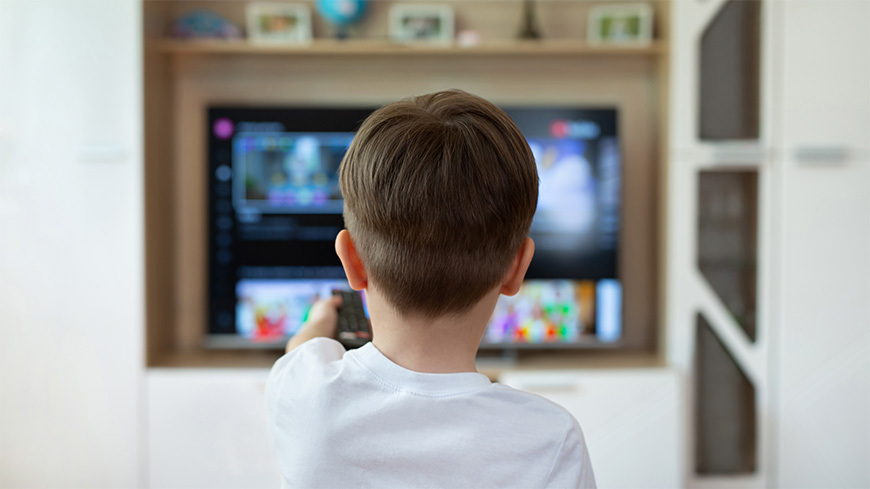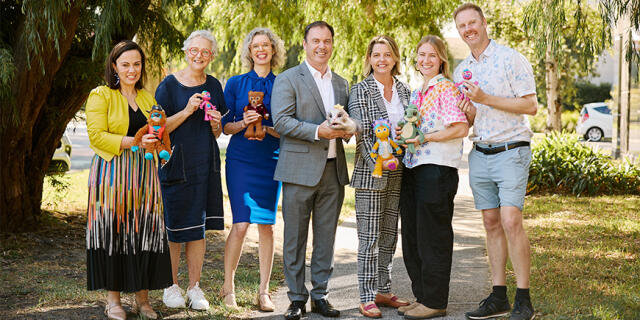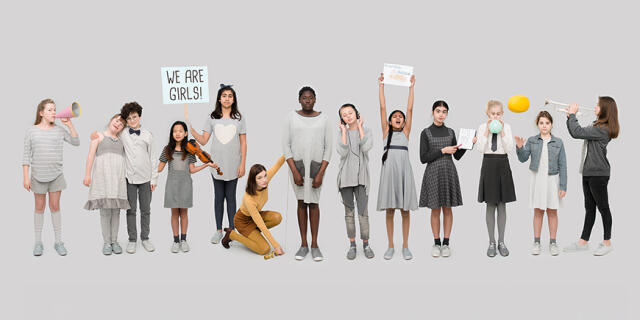
New research gives insight into the viewing habits of Aussie kids
New research shows Australian children struggle to find and identify locally made screen content among the flood of international options.
A new study, led by researchers at Swinburne and RMIT Universities and conducted in partnership with the Australian Children’s Television Foundation (ACTF), found that children primarily rely on algorithms to discover content rather than channel surfing or browsing through a TV guide.
The study of children aged 7-9 involved talking to children, documenting their viewing habits and observing their daily routines. The research was carried out at the Swinburne University of Technology BabyLab in Melbourne, a facility specially designed to study children’s media use in tandem with their psychological development. The study seeks to overcome limitations of existing research that relies on parental reporting by instead directly observing and interviewing children themselves.
RMIT’s Dr Jessica Balanzategui said the research team observed that most children relied on algorithmic content recommendations for their viewing, but did not understand how or why relying on algorithmically curated content could result in them missing out on local options.
She said: "Across research, policy and industry, we haven't fully addressed the implications of kids' screen time now being driven by children’s ‘on-demand’ viewing selections, which are mediated through algorithmic curation and platform interfaces.
“These are often driven by corporate strategies and interests that can restrict children’s access to the available local options.”
The research found US-based global streaming video platforms Netflix and YouTube were the most popular, which had flow on effects when it came to the children’s ability to find age-appropriate and local content.
The research also revealed that children struggled to identify Australian content. Among the children researchers spoke to, some assumed because they mainly watched YouTube and Netflix, they were only watching American content. Even in cases when their favourite shows were Australian, they sometimes assumed they were American.
Child: I watch a lot of American. […] They always show the flag and speak American. America’s a crazy place […] I do like American shows a lot, but not really Australian shows.
Researcher: But what about Little Lunch and InBestigators? [two Australian shows the child had previously identified as his favourites].
Child: Little Lunch is definitely American.
Researcher: No, that one’s an Australian show!
Child: [Physically recoils. Shocked pause] Well… InBestigators is American!
Researcher: InBestigators is Australian too!
Australian content was more obvious to children when it featured stereotypical landmarks or animals – like the Australian outback or kangaroos – or when their parents pointed it out.
Local children's television is important because it can help kids connect with their own culture and surroundings, fostering an appreciation for their own community and country. However, parents generally didn't see encouraging their children to watch local content as a priority given the many other complexities of raising kids today.
This paints a worrying picture for the future of Australian content, with locally made Australian children’s television content decreasing by more than 84% between 2019 and 2022, shrinking from 605 hours to just 95 hours.
A key part of the Federal Government's National Cultural Policy is to help children become smart, thoughtful and engaged users of the internet and digital platforms. Balanzategui said making locally produced children's content more accessible and recognisable on streaming services needs to be addressed as an industry and policy priority.
“If local content was better labelled across the streaming platforms, or perhaps organised in a central hub, it would be easier for young people to discover Australian programs appropriate for their age.”
Balanzategui said developing education literacy programs might help children and their parents better navigate the streaming era, as would better labelling of local and age-appropriate content.
This research forms part of a broader project on Australian children's television cultures funded by the Australian Children's Television Foundation, with researchers from RMIT and Swinburne University of Technology.
Learn more here.
See also:
March 27th 2025
Tales from Outer Suburbia adaptation to screen at prestigious Annecy Festival
The television adaptation of Shaun Tan’s bestselling illustrated anthology Tales from Outer Suburbia has been selected to screen at the Annecy Animated Film Festival in France, which celebrates the best of international animation.
March 26th 2025
Puppetry meets politics on the set of Knee High Spies
The Victorian Minister for Creative Industries, Colin Brooks, recently went behind-the-scenes on the upcoming children’s series Knee High Spies, currently being produced in Melbourne by Werner Film Productions (Dance Academy, The Newsreader) for the ABC.
March 24th 2025
Space Nova S2 to launch onto screens this April
The animated adventure series Space Nova returns for a second season next month, premiering on ABC iview on Thursday 24 April.
March 24th 2025
Aussie kids’ content recognised with Rockie Award nominations
Preschool animation Eddie’s Lil’ Homies and family feature film Windcatcher have been recognised for their excellence with nominations in the prestigious 2025 Banff World Media Festival Rockie Awards.
March 3rd 2025
Screen stories to share with your class for International Women’s Day
International Women’s Day celebrates the social, economic, cultural and political achievements of women. These screen stories about change-making Australian girls and women will help primary and secondary teachers explore this year’s theme: Accelerate Action.




